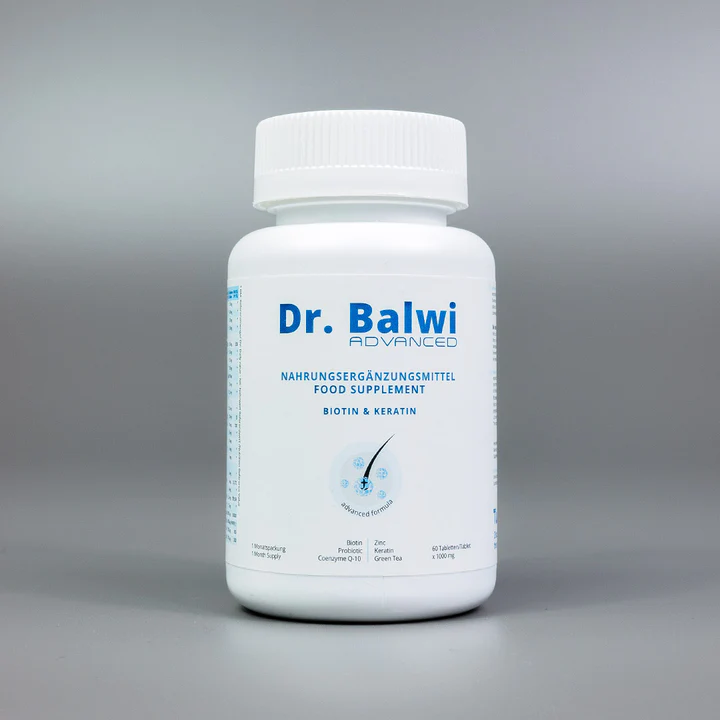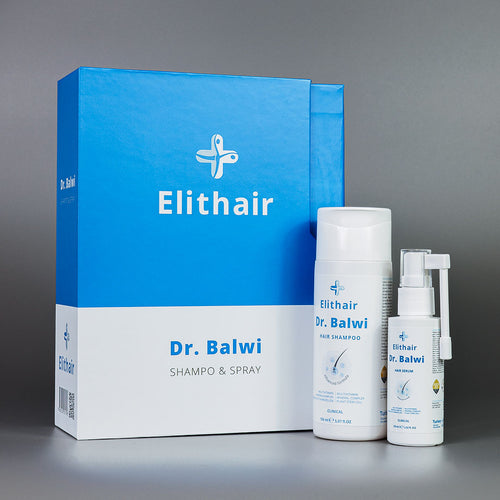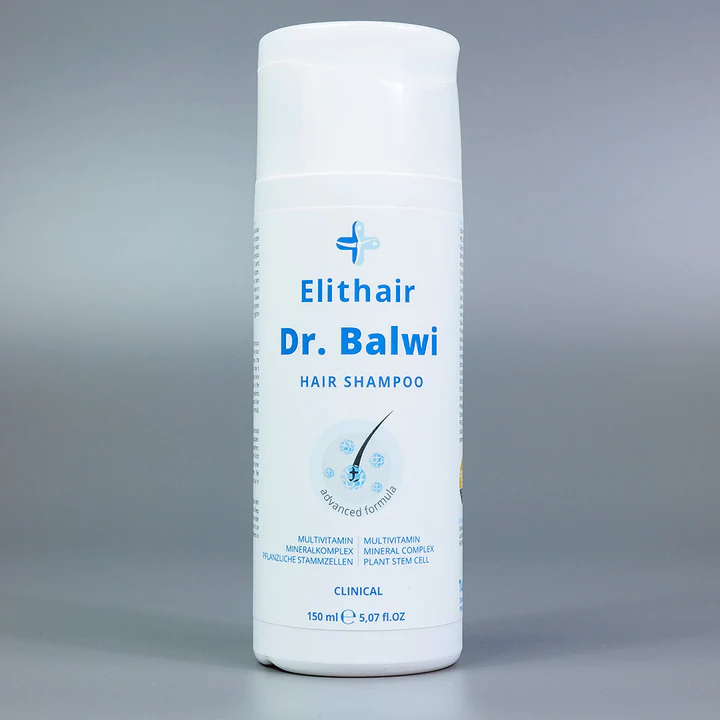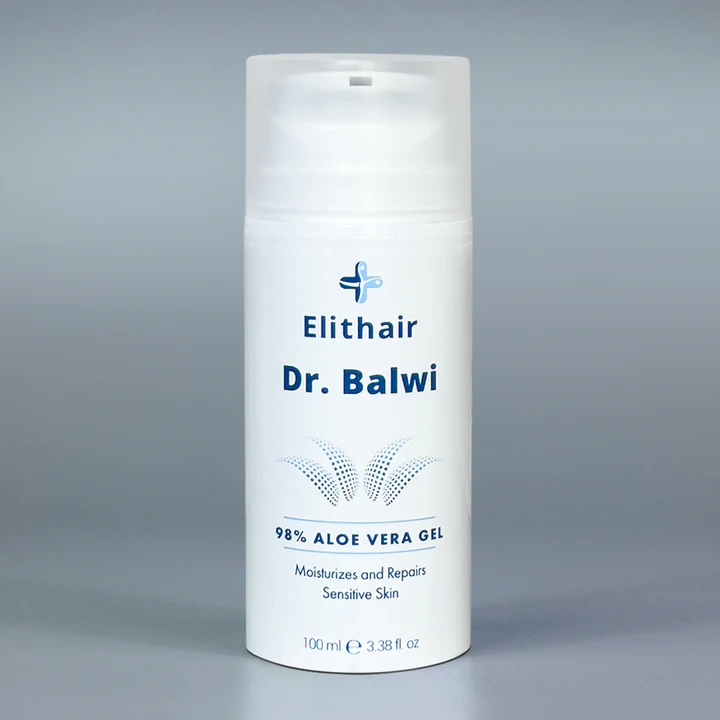
What Causes Hair Loss From Weight Loss?
When you decide to lose weight, you’re probably looking forward to all the positive benefits that come with it. However, for some who choose extreme diets or surgery without following doctor’s advice, it can result in negative consequences such as hair loss. Here we will discuss how hair loss from weight loss can occur as well as preventative measures and treatments you can use to combat this.
Summary
- Hair Loss After Dieting
- Hair Loss After Surgery
- Ozempic and Hair Loss
- Prevention & Treatment of Weight Related Hair Loss
- Conclusion
Hair Loss After Dieting
Though not altogether common, hair loss can occur as a symptom of weight loss, particularly when following a new diet. There are a number of reasons for this, ranging from sudden stress on the body due to drastically reduced calorie consumption, to nutrient deficiencies. Here are some of the most common dietary causes of hair loss:
Restrictive Dieting
A restrictive diet is one that eliminates certain food groups in order to hasten weight loss. Diets that require the omission of key nutrients such as carbohydrates, for example, are considered restrictive. These diets have been linked to a type of hair loss called acute telogen effluvium. Here, the body is placed under stress due to the sudden change in nutrition and the resulting weight loss.
When the body does not receive requisite nutrition, it deprioritises non-essential functions like hair growth. This means that hair that would otherwise be in the growth phase instead enters the resting phase, leading to premature loss. Typically, it takes around 3 months from the beginning of the diet for hair fall to occur.
A restrictive diet such as a low calorie one will result in a lack of protein. In these cases, amino acids which are necessary for hair growth and keratin production are not provided in high enough amounts for the body. Similarly, deficiencies in iron, zinc, selenium and fatty acids have been connected to hair loss from dieting.
Crash Dieting
Crash dieting refers to a sudden shift in diet which leads to rapid weight loss. Crash dieting can occur when following a restrictive diet if and when a person chooses to restrict the consumption of certain nutrients without following guidance from a doctor. Research has linked hair loss and crash dieting since the 1970s, stating that poor nutrition is ultimately the cause of the hair loss.

Hair Loss After Surgery
Dieting is not the only way to lose weight. Increasing numbers of people are opting for surgical solutions to their weight problems, and these solutions can also have a knock-on effect on hair health. Below, we explain some of the most common causes of hair loss from weigh loss surgery.
Gastric Sleeve/Bypass Surgeries
As with restrictive and crash dieting, the rapid weight loss caused by gastric sleeve/bypass surgeries can put stress on the body, causing it to prioritise vital functions over the regeneration of hair. In the case of gastric sleeve/bypass surgery, it is more likely that stress is the underlying cause and not a nutritional deficiency, as these procedures should not impact your body’s absorption of nutrients.
In 2021, a study showed that 75 % of women who underwent a gastrectomy experienced some form of hair loss following the surgery. The majority of respondents noted that the hair loss occurred 3-4 months after the procedure, as with other forms of telogen effluvium.
Malabsorptive Surgeries
Surgeries like biliopancreatic diversion, on the other hand, are ones which can affect the way your body absorbs its nutrients. Not only is the stomach capacity reduced, but part of the intestine is often bypassed, causing a weakness in the absorption of nutrients. This can then increase the risk of deficiencies and related medical conditions forming. The most common of these are iron, zinc, protein, copper, and Vitamins A, C and B9.
Ozempic and Hair Loss
Ozempic is a drug designed for the treatment of diabetes, but its use as an effective appetite suppressant has seen it become a widespread treatment for weight issues. As the drug is still relatively new, there has been little research on Ozempic and hair loss. However, some patients who have been prescribed the drug have reported noticeable hair loss.
In this case, it would appear that the hair loss is due not to the drug itself, but rather to the stress on the body of rapid weight loss. In this regard, the loss is similar to that found in restrictive and/or crash diets. If you have been prescribed Ozempic and are experiencing hair loss, speak to your doctor.
Prevention & Treatment of Weight Related Hair Loss
Prevention
If you are planning to start a new diet or hope to undergo weight loss surgery, there are preventative measures you can take to preserve your hair health. Avoid fad or extreme diets that require you to cut out specific nurtrients and seek guidance from your doctor before making any drastic dietary changes. If you are planning on adopting a vegetarian or vegan diet, be sure to supplement your new diet with plenty of iron and zinc.
If you’re looking to keep your hair healthy while trying a new diet or just want a boost, you should try Dr. Balwi’s Biotin and Keratin supplements. These are two of the most important nutrients for the production and maintenance of your hair. It helps to safeguard against shock loss and thickens the hair structure.
Safe ways to lose weight
Weight should be lost in a sustainable and gradual manner in order to prevent your body reacting to stress. Your diet should be combined with exercise in order to help with stress maintenance and the balance of your hormones.
If you are opting for a surgery, your doctor should provide you with medical advice including a nutritional plan prior to your procedure. High protein meals and snacks are advisable in order to maintain healthy hair.
Oral supplements may be recommended, such as iron and zinc, and it’s critical not to overdo it on other nutrients. Vitamins A, E and selenium can result in extended hair loss if found in too high quantities. A recovery schedule should also be followed, which will outline the ideal diet following your procedure.
Treatment
If you have already experienced hair loss, it’s essential to confirm that it is as a result of the weight loss and not another reason. While it could just be the shock your body is experiencing at the sudden drop in weight, it could also be a nutrient deficiency which will require supplementation in order to remedy it. You can contact your doctor in order to perform tests to see if you are lacking in any specific nutrients.
If an extreme diet is causing the hair loss, the sooner you stop the diet, the sooner the hair will start to regrow. A balanced diet with exercise and the right amount of vitamins and minerals is essential to healthy hair growth.
Stay hydrated and be gentle with your hair care routine, ease up on shampoo in order to let your hair release its natural oils and avoid high heat treatments. If the hair loss is not subsiding, then a hair transplant can help those who are looking for a permanent solution to long term hair loss.
Conclusion
If you’re looking to lose weight, it’s important to prioritise getting the right balance of nutrients and vitamins in order to prevent hair loss from weight loss. Before embarking on a new diet or undergoing surgery, you need to properly prepare your body for any shock that might occur, leading to hair loss.
If you’re worried about your hair loss and are looking for a long-term result, then contact one of our experts today. With a hair transplant, you can have full, healthy hair again that lasts a lifetime.
FAQs
How long does it take for hair to regrow after weight-related hair loss?
In most cases of telogen effluvium caused by weight loss, hair regrowth can begin within 3 to 6 months after addressing the underlying issue. However, full recovery may take 6 to 12 months, depending on factors like diet, supplements, and overall health.
Can hair loss from weight loss be permanent without treatment?
Generally, telogen effluvium is temporary and self-corrects once the body recovers from the stress. However, if hair loss is left untreated, or if there are prolonged nutrient deficiencies, it can potentially lead to permanent thinning or trigger androgenetic alopecia (pattern hair loss) in predisposed individuals.
Is there a specific type of weight loss surgery that causes more severe hair loss?
Malabsorptive surgeries, like biliopancreatic diversion or duodenal switch, typically carry a higher risk of prolonged or severe hair loss due to reduced nutrient absorption. Gastric sleeve or bypass surgeries are less likely to cause long-term hair loss if nutritional guidelines are followed.
What role does hormonal imbalance play in weight loss-related hair loss?
Rapid weight loss can trigger hormonal imbalances, especially related to thyroid function, cortisol, and insulin levels, which can exacerbate hair shedding. Ensuring hormonal balance through a gradual weight loss process can help prevent this issue.
Are there specific signs that distinguish nutrient deficiency hair loss from shock-induced hair loss?
Yes. Nutrient deficiency hair loss is often gradual and accompanied by other signs such as brittle nails, fatigue, or dry skin. Telogen effluvium due to shock is typically more sudden and noticeable within 3 to 4 months of the inciting event.
Can certain supplements worsen hair loss if taken incorrectly?
Yes. Overconsumption of supplements like Vitamins A, E, and selenium can exacerbate hair shedding or prolong recovery. It is important to follow medical advice and avoid self-prescribing high doses of supplements.
Can hair loss due to restrictive diets be prevented entirely?
While it is difficult to prevent all hair loss in extreme cases, maintaining adequate protein intake, incorporating iron- and zinc-rich foods, and using biotin and keratin supplements can significantly reduce the severity.
What foods are recommended to promote hair regrowth after weight loss?
Foods rich in protein (e.g., eggs, fish, and lean meat), iron (e.g., spinach and legumes), zinc (e.g., pumpkin seeds), omega-3 fatty acids (e.g., fatty fish and walnuts), and vitamins A, C, and E are highly beneficial for supporting hair regrowth.
Can stress from weight loss independently trigger hair loss, even with a proper diet?
Yes. Psychological and physical stress from significant weight changes or life events can independently cause telogen effluvium, regardless of the diet followed. Managing stress through exercise, meditation, and proper rest is essential.
What other medical conditions can mimic hair loss from weight loss?
Conditions like hypothyroidism, anemia, polycystic ovary syndrome (PCOS), and autoimmune diseases (e.g., alopecia areata or lupus) can mimic or worsen hair loss during weight loss. It is crucial to rule out these conditions through medical evaluation.



